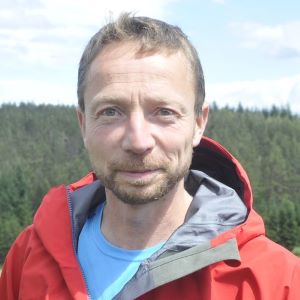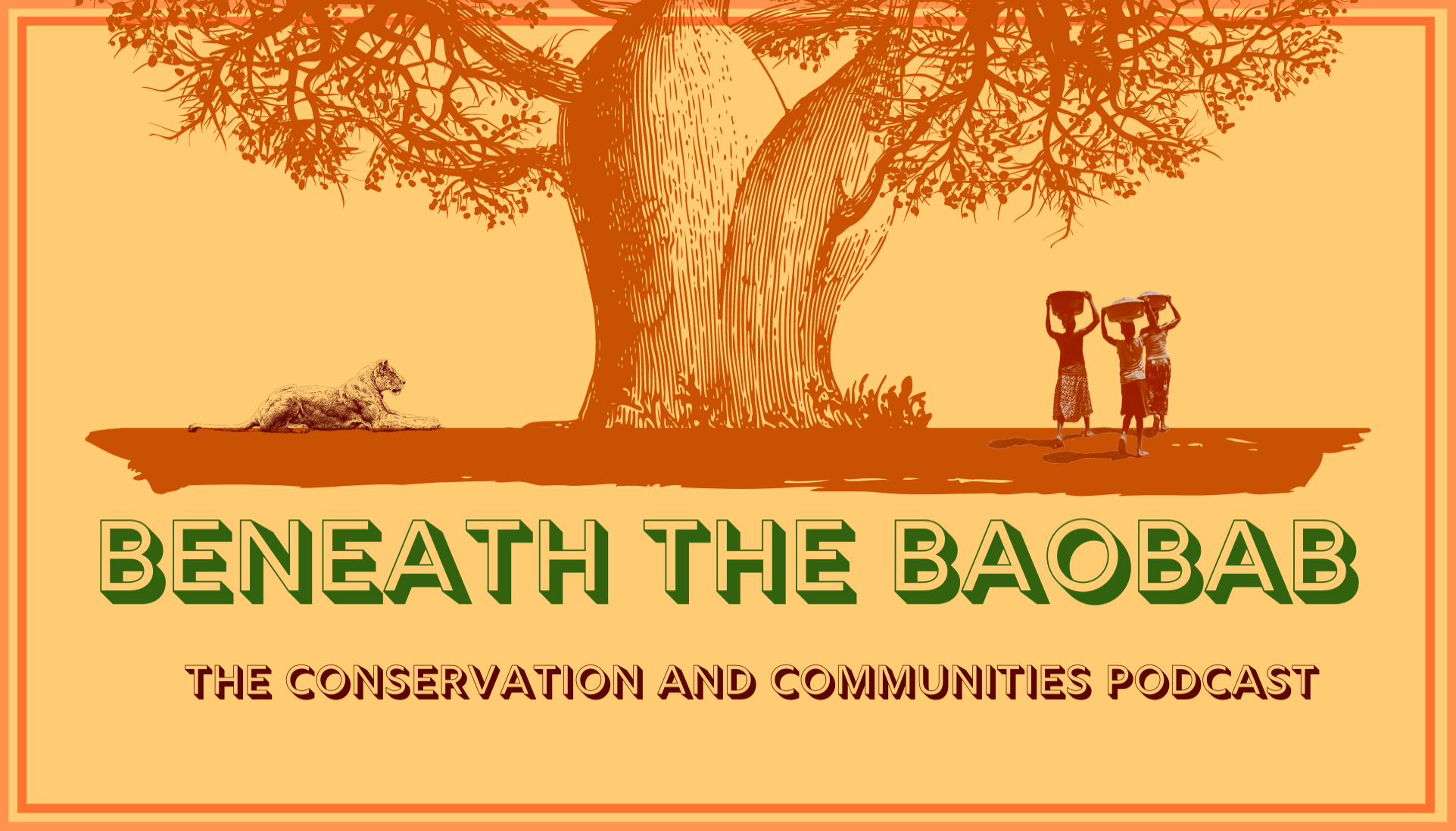

JAMMA PODCAST
In the podcast series, 'Beneath the Baobab' from Jamma International, wildlife filmmaker Gordon Buchanan hosts cutting-edge conversations about community-led conservation efforts around the world in Season One. Now, in Season Two, the focus shifts to the critical issue of human-wildlife conflict. Join Gordon as he travels across Southern Africa to meet the communities living alongside wildlife, exploring their challenges and solutions.

Meet the Host
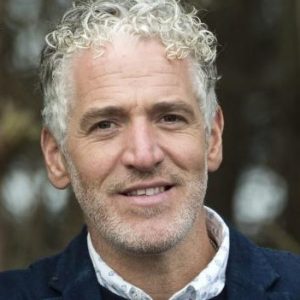
Gordon Buchanan
Gordon John Buchanan MBE is an award-winning wildlife cameraman, presenter and public speaker. His work includes the nature documentaries Tribes, Predators & Me, The Polar Bear Family & Me and Life in the Snow. Gordon Buchanan has a reputation for relishing dangerous and tough assignments. He has taken part in challenging expeditions and adventures around the globe including South America, Asia, Africa, Papua New Guinea, Russia and Alaska, always with a view to raising awareness of the fragility of the world’s endangered species and habitats.
About Season Two
On our changing planet, our relationship with some wild species is complicated. With human population growth, habitat loss, climate change, even policy changes, people and wild animals are increasingly sharing space and resources, often resulting in devastating conflict. Ranging from simple fear, to destruction of crops, to loss of livestock, there's not just a threat to livelihoods, but there's a real threat to human lives. But beyond this strife, there are solutions. And there are stories of remarkable, profound connections with wildlife that transcends the conflict. Join us to meet the communities, the families, the people, at the very heart of the matter. As we discuss the coexistence challenge Beneath the Baobab.
Episode 1 – Navigating Community Engagement & Compensation
Guests: Anna Manie Teto, Thulani Nghoyama, Anna Njovu and Bhili Rackson
Synopsis:
We journey to the western border of Kruger National Park, a region teeming with biodiversity and home to both iconic wildlife and resilient communities. We’ll hear first hand accounts from these communities who are battling to safeguard their livelihoods. Anna Manie Teto tells us how she has lost cattle to crocodiles, whilst Livit shows us how one of his goats was victim to a jackal – and explains how wildlife can damage essential crops. Anna Njovu describes how calf attacks have affected her – and her family’s life – with her husband having to take a job in Durban to support his family. Thulani Nghoyama was our guide and translator in South Africa and speaks of hope in the community. Whilst he acknowledges the coexistence problems faced on a daily basis he describes how the people living alongside Kruger National Park have a love of the wildlife that surrounds them, and how education is a key part of a positive future. We finish the episode with a conversation with Bhili Rackson, who has grown up in the area. Starting as a tracker, he now runs a lodge and describes what he believes are the financial and cultural benefits; both at the lodge and for the wider community.
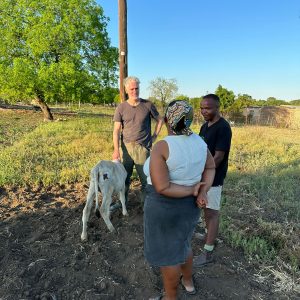
Western Border of Kruger National Park
Watch the first episode
Episode 2 – Leopards, Livestock and Alternative Income Sources
Guests: Neville Hendricks the Conservancy Manager, and community members Mr Riaan, Ama-e Uiras, Johanna Hansen, Daniel Geiseb and Enrico Gornseb.
Synopsis:
In this episode, we travel to Namibia and visit the Gaingu conservancy to explore human wildlife conflict and effective coexistence and mitigation methods. In 2020, three herders from the conservancy were attacked by a leopard after attempting to protect one of their goats. The affected farmer received no help for this and although translocation was considered for the leopard and her cubs, nothing was implemented – and the animal continues to return periodically, injuring livestock. We spoke to the victims of the 2020 attack and heard about the challenges of moving livestock to ensure they are fed and watered, whilst protecting them from predators. In conversation with other members of the community, we heard their solutions and how animals can be an asset both financially and in terms of centuries-old coexistence. Neville Hendricks the Conservancy Manager and Gordon Buchanan, explore the themes of trophy hunting, conservation, and how communities can make decisions for – and benefit from – the wildlife around them.
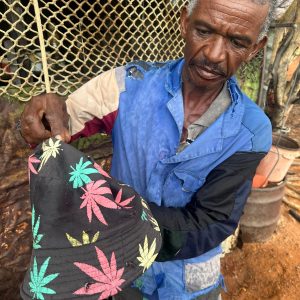
Namibia - Gaingu Conservancy
Watch the second episode
Episode 3 – Life After Attacks & Loss of Livelihood
Guests: Richard Poniso, Michael and Dominic Muemma, operations manager for IRDNC.
Synopsis:
In this episode, we remain in Namibia to look at the human wildlife conflict that takes place in, and around conservancies and discover how, despite some horrific stories, governments and communities can come together to create an effective co-existence between humans and wildlife. We visit the Nakabolelwa Conservancy in the Zambezi region to hear how it can be flooding, rather than drought, that affects farmers – but also how elephants and buffalos not only damage the crops that villagers need to survive, but can also maim and sometimes kill them. The country’s Ministry of Environment, Forestry & Tourism offers some compensation and support for those affected by human wildlife conflict, there is the acknowledgement that more can – and sometimes needs – to be done. Both Richard Poniso and a farmer named Michael tell their stories. Dominic Muemma, operations manager for IRDNC (Integrated Rural Development and Nature Conservation) in the Zambezi region, explains how they empower local communities to manage their natural resources and help form conservancies, which results in revenue from tourism and the sustainable utilisation of wildlife. Despite the challenges and some heart-breaking stories in this episode, with 86 conservancies in the country, communities are also able to accrue benefits from the natural resources around them, alongside the tourist trade, and receive 100% of the income to be used in ways they see fit in their local areas.
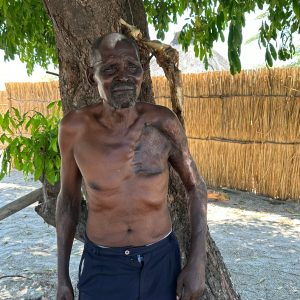
Namibia - Nakabolelwa Conservancy
Episode 4 – How Organisations Aid Coexistence
Guests: Mr Mwezi, Moses Sinchembe from The Chobe Enclave Community Trust, Letlhogonlo Kamuti from Ncongo, Mubuso Kakambi, Andrew Mukwati and Jess Isden from WildCRU.
Synopsis:
In this episode, we explore innovative approaches in Botswana and how organisations are supporting human-wildlife coexistence. Visiting the Chobe enclave, we witness the challenges faced by locals due to wildlife from the nearby National Park. Mr. Mwezi, a community leader and cattle rancher, shares his struggles with drought and predator risks, along with personal losses. We also speak with Moses Sinchembe, leader of the Chobe Enclave Community Trust, who believes that by understanding the ‘language’ of wildlife, animals and humans can live alongside each other more effectively. Letlhogonlo Kamuti from NCONGO discusses wildlife’s cultural significance and the opportunities from hunting quotas and tourism. Letlhogonlo Kamuti from NCONGO discusses wildlife’s cultural significance and the opportunities from hunting quotas and tourism. Later in the episode, you’ll hear from three individuals at WildCRU (Wildlife Conservation Research Unit) who work on the ground with communities, helping them see the benefits of coexistence and equipping them in ways to protect their livestock from predators.
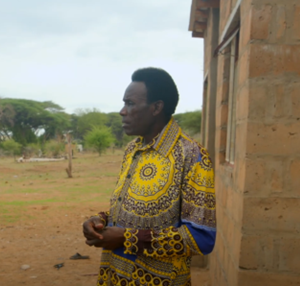
Botswana - Chobe Enclave
Episode 5 – How Government and Communities Work Together for Wildlife Coexistence
Guests: Maxwell, Chief Mahenye, Liberty Chauke and Clive Stockil
Synopsis:
In this episode, we visit the Mahenye community and Jamanda Conservancy in Zimbabwe where the hope is that tourism revenue will aid those living alongside dangerous, and sometimes life-threatening, wildlife. The Jamanda Conservancy is the location for the first Communal Area Management Programme for Indigenous Resources (CAMPFIRE) and today boasts an upmarket tourist lodge called Chilo Gorge Safari Lodge. This has resulted in an increase in revenue for the community and employs many of their members. The creation of the conservancy created a 10km border with Gonarezhou National Park and has re-established the ancient elephant migration route between Gonarezhou and Chimanimani in Mozambique. Maxwell was the victim of a horrific crocodile attack on the Save River, but 20 years after, shares his story and his relationship with wildlife after such a life changing event. Chief Mahenye represents every family in the community as part of his role. He explains how the challenges of coexisting with wildlife match up with the monetary benefits that come from hunting and tourism. Liberty Chauke is a CAMPFIRE community association board member and feels that changes in land management, herding and accessibility to water would go a long way to improving the quality of life for the Mahenye. And Clive Stockil is a wildlife expert and partner in the lodge and warns that unless mechanisms can be put in place to maintain and improve coexistence, the people’s wishes will win over the wildlife.
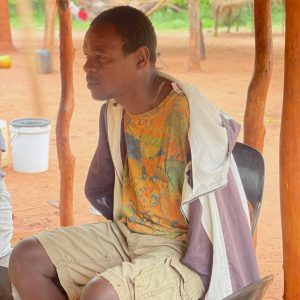
Zimbabwe - Jamanda Conservancy and Mahenye Community
Episode 6 – Challenges In A Resettlement Area
Guests: Morina Musisinyani, Mr Chirhilele, Dr Shylock Muyengwa and Kevin Mfishani
Synopsis:
In this episode, we meet the Chizvirizvi community in Zimbabwe – a latecomer to the CAMPFIRE programme, compared to the Mahenye featured in episode 5. Chizvirizvi is somewhat different as it’s not operated by the Rural District Council. Instead, authority for the utilisation and management of wildlife has been conferred to the community or collective resettlement scheme plot holders. And with the authority only designated in 2003, their CAMPFIRE programme is relatively in its infancy, with the infrastructure only just beginning to grow. A survey in 2013 discovered the 77% of the population said they had experienced human wildlife conflict between the year 2000 and 2010. With this background, we expected a very different conversation to the one we had at the Jamanda Conservancy but as we’ve found throughout this series, there are always surprising – and often uplifting – stories to hear. We start with a shocking story of bravery in the face of a crocodile attack from Morina and her son Gideon. Thankfully, the story ends well. Mr Chirhilele is a farmer and rancher and describes how scouts and monitors go some way to protecting residents’ cattle but could do more. He asks that the wildlife population be maintained at an optimal number to ensure coexistence for him and his family, and for future generations. Dr Shylock Muyengwa is Managing Consultant at the Centre for Impact Evaluation and President of the Zimbabwe Evaluation Association and since 2007, has studied community-based natural resource management systems (CBNRM) and is the director of Resource Africa. Kevin Mfishani is a member of Community Leader’s Network and a project officer with the Zimbabwe CAMPFIRE association. They discuss the past, present and future of life alongside wild animals and the importance of empowering communities to make decisions and revenue, utilising their natural resources.
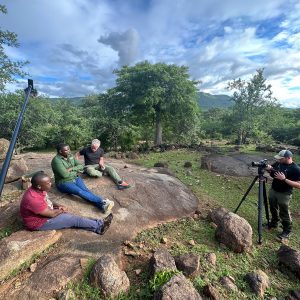
Zimbabwe - Chizvirizvi community
Episode 7 – How Agriculture is Affected By Human Wildlife Conflict
Guests: Malidadi Langa, Senior Chief Lukwe, Catherine Chunga and Leonard Moyo
Synopsis:
Kasungu National Park forms part of the trans-frontier conservation area between Malawi and Zambia. The area used to have a thriving wildlife population but due to poaching, it was left depleted with the resident elephant population coming close to extinction. A translocation plan, put in place by the Malawian government, IFAW and African Parks, has returned the elephants to the park. Despite a positive long-term vision, the short-term effects have resulted in a number of human deaths, animal predation and crop damage – and with the country’s economy being agriculture-focussed, this aspect of human wildlife conflict is a particular concern in Malawi. Fences are also proving to be a contentious issue. An area being fully-fenced goes against the principles of landscape-scale conservation and prevents free movement but it does provide extra protection to local communities. The tensions are laid bare in this episode. Malidadi Langa is an economist and retired public servant with extensive experience across decentralisation, rural development, natural resource management governance and public policy – and community based natural resource management, otherwise known as CBNRM. He’s currently Chairman of the Board of Trustees for the KAWICCODA community association, represents Malawi CBNRM associations in the Southern Africa Community Leaders Network, advocating for community rights around sustainable use and benefit sharing. Senior Chief Lukwe describes a highly populated country in comparison to its neighbours, the need for civic education of the risks from wildlife, and the importance of compensation for victims of human wildlife conflict. Catherine Chunga is education and extension officer at the Department of Parks and Wildlife, Leonard Moyo is Education Division Manager and Ndaona Kumanga is National Park Manager at Kasungu. They describe Malawi’s unique relationship with wildlife, the challenges the local communities face, and what they are doing in their roles to manage and resolve human wildlife conflict.
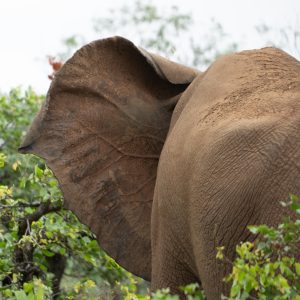
Malawi - Kasungu National Park
Episode 8 – Co-existing with Zambia’s hippo population
Guests: Rodgers Lubilo, a conservation and rural development expert as well as Goodson, Tinde and Dennis
Synopsis:
In this episode, we travel to Zambia to investigate a different – and lesser known – wildlife conflict to the ones already explored in the series. The hippo affects many lives, often tragically, and we meet local people with their own stories to tell; both of hippo attacks and injuries caused by elephants in the country. The Luangwa Valley sees dramatic seasonal variations and with a dynamic river system, fertile soil and lush vegetation, it’s the perfect home for a wide variety of animals – leading to a co-existence situation that delivers both opportunities and challenges for humans living in the area. In Lupande Game Management Area (GMA), increased human population has led to the expansion of human settlements into protected areas, constricting many species’ ranges and an increase in wildlife populations has resulted in wildlife straying out of protected areas and into crop and livestock areas. Rodgers Lubilo is a conservation and rural development expert from Zambia. He has 25 years’ experience in community led conservation in Southern Africa – especially in Zambia, Namibia, Botswana, Mozambique and South Africa. He is a champion of community rights to benefit from conservation. He chairs the Zambian CBNRM Forum and the Community Leaders Network of Southern Africa – a leading voice for local communities and indigenous peoples in the region. We also hear from Goodson, Tinde and Dennis; all of whom have personal, and often tragic, stories of living in conflict with hippos and elephants.
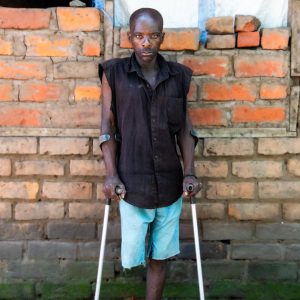
Zambia - Luangwa Valley
Episode 9 – Back Home With Scotland’s Beaver Population
Guests: Elliot McCandless from the Beaver Trust and Tom a fifth-generation farmer
Synopsis:
Presenter Gordon Buchanan heads home to Scotland to explore the Beaver Trust’s efforts to “regenerate the beaver species to regenerate the landscape.” This charity works to reintroduce animals to their historical habitats, fostering climate-resilient landscapes across the UK. We speak with Elliot McCandless from the Beaver Trust and Tom, a fifth-generation farmer with a unique role compared to his predecessors.
Our conversations, though far from the baobab, share similar ambitions, challenges, and conflicts. We met with Elliot and Tom by the mud banks of a beaver lake, home to the second family of beavers introduced to Tom’s land in February 2022. The translocation and reintroduction of beavers in Scotland stir up controversies, with conservationists, farmers, government officials, and local residents all holding differing views on the beaver population.
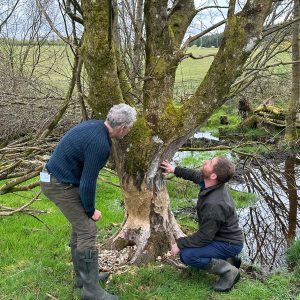
Scotland - Glasgow
About Season One
In season one we learn about Community Based Natural Resources Management, hear from indigenous peoples who are exercising their rights to do innovative work as custodians of resources for generations, then find out how they’ve developed work schemes, governance and management systems that allow them to place a high value on wildlife and build the economic case for conservation. The future for wildlife and endangered species can be positive, if we are all prepared to listen. Join Gordon and his guests Beneath the Baobab for stories of hope as well as brilliant, radical and innovative ideas for solving the problems faced by humans and wildlife.
Guests: Maxi Pia Louis and Lorna Dax
Synopsis: In the first episode of Beneath the Baobab, Gordon Buchanan chats with Maxi Pia Louis, Director of the Namibian Association of CBNRM Support Organisations (NACSO) to find out what Community Based Natural Resource Management is. Namibian-born Maxi’s passion for people and wildlife has driven her to look for better conservation solutions in the face of climate change and increasing economic pressure. She explains how studying abroad and being a student during the Apartheid years has inspired her work to create positive change for nature and to protect and champion human rights. Maxi also tells how inspiring eco-tourism schemes and changes to governance have supported successful CBNRM movements across sub-Saharan Africa, and shares her hopes for a future beyond the Covid-19 pandemic.
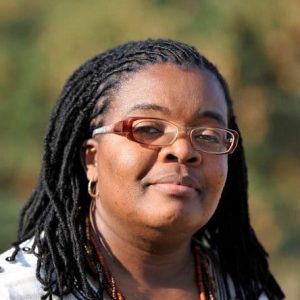
Maxi Pia Louis
Guests: Prof. Amy Dickman and Darwin Kanai Gakenia
Synopsis:
In this episode, Professor Amy Dickman chats with Gordon Buchanan about the complexities of developing community-led conservation and some common misconceptions that can trip up wildlife-lovers around the world. Amy’s the joint CEO of Lion Landscapes and one of the co-founders of the Pride Lion Conservation Alliance. Her dedicated career and wealth of on the ground experience gives her a unique insight into developing biodiversity solutions where dangerous wildlife and people co-exist. She tells of her journey to engage with the elusive Barabaig tribe around Ruaha National Park, Tanzania, to understand and work around lion-killings in this area. Amy also shares her joy at successful programmes to preserve and monitor wildlife whilst enriching the economic resources of villages.
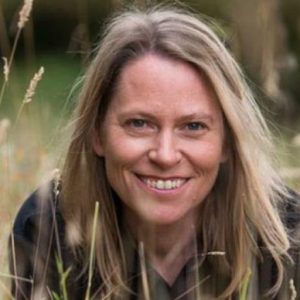
Prof. Amy Dickman
Guests: Dr Moreangels Mbizah
Synopsis: Dr Moreangels Mbizah has dedicated her life to protecting the livelihoods of rural African communities in human-wildlife conflict and is world-renowned for her work with lions and large carnivores. In this episode she talks with Gordon about her life’s work and current focus as Director of Wildlife Conservation Action in Zimbabwe. Moreangels explains how the recruitment of Community Guardians as well as the introduction of predator-proof bomas and livestock kraals has allowed communities to manage their livelihoods without conflict with lions, elephants and hyaenas in Nyaminyami, Zimbabwe.
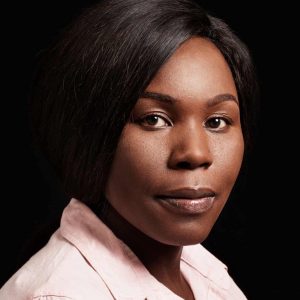
Dr Moreangels Mbizah
Guests: Dr Dilys Roe and Sam Shaba
Synopsis: Dr Dilys Roe and Sam Shaba share examples of models for supporting livelihoods and wildlife to thrive in shared spaces, from ecotourism and carbon credit schemes to incentivisation of the sustainable use of natural resources. The thing that most inspires Dilys in her work is visiting locations to connect with communities, people and practises and to find out how community-based conservation is working. She explains how she’s working with international expertise to bring these voices and experts to the forefront of conservation innovation and policy. Sam Shaba then talks to Gordon about his work at Tanzanian Initiative Honeyguide, which works in landscapes where community conservation is key to wildlife conservation. He explains how their projects have developed and gained pace in Wildlife Management Areas like Randilen, where community partnerships are central to conservation.
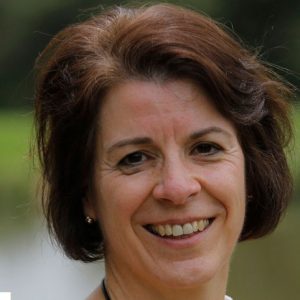
Dr Dilys Roe
Guests: Shane Mahoney
Synopsis: Shane Mahoney is an internationally recognised wildlife expert and conservation advocate – and is the Founder and President of Canadian enterprise Conservation Visions. Born and raised in Newfoundland, Shane has a unique insight into the inter-relationship of wildlife, individuals, communities and environments. In this episode he shares with Gordon his thoughts on historical narratives around conservation, and what nature can teach us about finding a way forward. He’s worked extensively to advocate for transformation in governments and institutions to help them to reassess their values and goals around conservation.
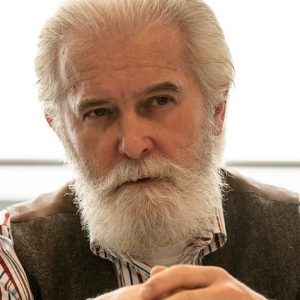
Shane Mahoney
Episode 6 – Resource rights are human rights
Guests: Lesle Jansen
Synopsis:
This time Gordon Buchanan’s talking with Lesle Jansen to discuss how resource rights are also human rights. Lesle’s background working with prison inmates in South Africa post-apartheid sparked a career in international law and her continued work to defend the rights of indigenous communities to use and exploit their own resources. She shares her personal story and fascinating insights into why she believes conservation needs to shift from being militaristic in practise to becoming people-centred and rights-based.
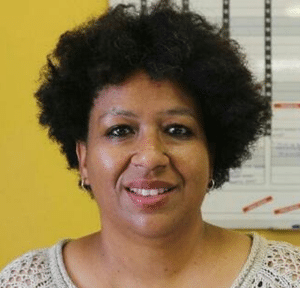
Lesle Jansen
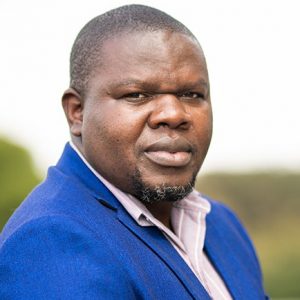
Dr Shylock Muyengwa
Episode 7 – Community Rights to Resources
Guests: Dr Shylock Muyengwa and Dr Brian Child
Synopsis:
Dr Shylock Muyengwa and Dr Brian Child have teamed up from their homes on other sides of the world for years, conducting fieldwork and research with communities to help develop increasingly sophisticated models and practises for wildlife conservation with people at their heart. They explain how the pioneering CAMPFIRE programme worked to devolve rights for the use, management, disposal of and benefit from wildlife resources and how learnings have been built upon to build modern-day CBNRM. They also discuss the legacy of colonial land practises and laws in contemporary conservation and share ideas for overcoming this. Brian and Shylock discuss the social and practical aspects of this approach but also share details of the governance dashboard they developed with villagers to help them create participatory democracies for decision-making.
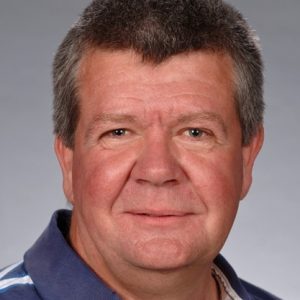
Dr Brian Child
Guests: Clive Stockil
Synopsis:
In this episode of Beneath the Baobab, Gordon meets pioneering Zimbabwean conservationist Clive Stockil.
Since childhood, Clive has been living with and serving the same community. It is his life’s work to continue forging and building coexistence benefits through sustainable conservation projects. The 1990s saw him founding the Savé Valley Conservancy, one of the largest private game reserves in Africa. This comprises 750,000 acres of biodiversity in the South-eastern lowveld of Zimbabwe. Clive talks with Gordon about his work with the Mahenye village community, formed from the community bordering Gonarezhou National Park, whose rights to resources were changed overnight by hunting laws and government conservation decisions. He explains how principles from the CAMPFIRE programme enabled the community to create sustainable tourism, earning an income to build local services and a school. Today, Clive and the Mahenye community run the Chilo Gorge Safari Lodge together, which allows tourists to celebrate the beauty of Gonarezhou National Park’s landscape in harmony with Shangaan culture.
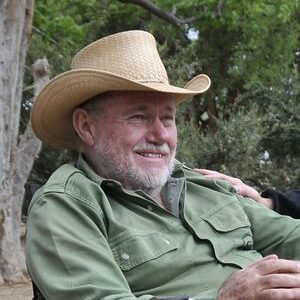
Clive Stockil
Guests: Professor Adam Hart
Synopsis:
This time, Gordon chats with scientist, conservationist, and broadcaster Professor Adam Hart about how we can move international public understanding of sustainable use forward. Adam shares his story, from a young entomologist to a sustainable use convert and co-director of a successful volunteer programme in South Africa. He also discusses the wider consideration of habitats when working to conserve wildlife whilst benefitting from its resources. Adam has developed a rhino-thick skin when taking to social media to challenge misinformation around sustainable use in conservation and says strong reactions and harassment on these forums can be a deterrent to academics advocating for these approaches. He does however share how he’s been watching coverage become more positive as public understanding increases. Adam and Gordon also discuss the role of media more widely in representing complex issues such as hunting and natural resource use, causing Gordon to reflect upon his own work as a wildlife filmmaker. We also hear from Adam’s colleague Lynne Mactavish, who shares her passion for wildlife. She also reveals the tough day-to-day decisions she makes as a custodian of the Nkombi volunteer conservation programme founded by her father.
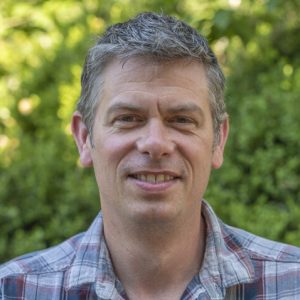
Prof. Adam Hart
Episode 10 – From Fortress Conservation to Locally Powered Wildlife Policy
Guests: Malidadi Langa
Synopsis:
From government office to grass-roots campaigning, Malidadi Langa has long been a leading force in Malawian wildlife policy. In this episode he chats with Gordon about how he’s used his experience in economics to become an international voice in rural development and decentralisation. They discuss the problematic impact of “fortress” conservation policies that historically isolated communities from their traditional resources. Malidadi explains the journey of the community development association within the Kasungu National Park, known for its elephant population near the Zambian border. He also discusses the challenges created by the Covid-19 pandemic for the park’s once thriving foreign tourist trade and shares actions from this year’s African Protected Areas Congress in Kigali. Today Malidadi continues to represent Malawi in the Southern Africa Community Leaders Network and advocates for conservation initiatives that prioritise local investment, respect human rights and support sustainable livelihoods.
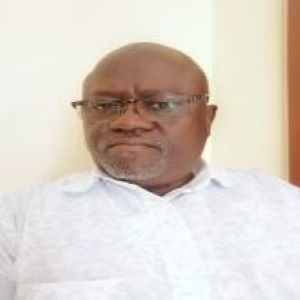
Malidadi Langa
Episode 11 – How Community Conservation is a Mechanism for Democracy ft. Dr Rodgers Lubilo
Guests: Dr Rodgers Lubilo
Synopsis:
Dr Rodgers Lubilo grew up in a village next to South Luangwa National Park, Zambia where wildlife, human life and livelihoods have always coexisted. It was in the mid-nineties when Rodgers became interested in local CBNRM initiatives. He then led a movement that convinced his family and village leaders to follow in experimental and innovative sustainable use programmes. As a pioneer of CBNRM in Zambia, Rodgers has been a driver of innovative change that has swept across conservation projects and fieldwork in Southern Africa. He says the biggest impact has been in seeing governments recognise the knowledge and expertise communities have in managing their local wildlife, and that this has been a driver of democracy and regeneration. In this episode of Beneath the Baobab, he shares his journey from farmer’s son to Director of CBNRM Programmes at the Frankfurt Zoological Society Zambia and Chair of the Community Leaders’ Network, where he continues to champion new talent, thinkers and practitioners in the conservation space. He explains the kinds of benefits and services he’s seen come to communities – including his own – since sustainable use models have boomed in the region. We also hear case studies from some of Rodgers’ colleagues, George Tembo, president of Zambia Community Resources Board Association and Petros Muyunda, Deputy National Coordinator at Zambia Community Resources Board Association recorded at the IUCN Africa Protected Areas Congress.
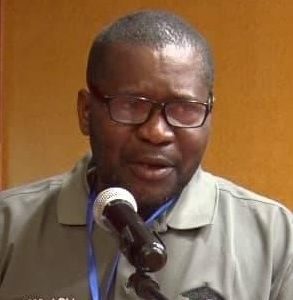
Dr Rodgers Lubilo
Episode 12 – Communities, Conservation and Change in Scotland’s Wild Places ft. Mike Daniels
Guests: Mike Daniels
Synopsis:
“We are all dependent upon the air that we breathe, the water we drink, the soils that we grow our food on. To mismanage them and treat them badly as we have done for centuries: we can’t go on that way.”
In a special final episode for the series, Gordon meets up with Mike Daniels of the John Muir Trust in Scotland. They take a walk through the beautiful landscape of East Schiehallion in Perthshire, where the Trust has recently completed a million-pound investment into restoring a footpath and visitor amenities on the mountain. Gordon and Mike discuss the unique nature of land ownership in Scotland and how that might be changing as more communities begin to take on stewardship of the land. Mike also shares schemes that have been put in place to restore a pre-Victorian version of nature and biodiversity to some of the areas they manage. They discuss the complex issue of deer management and the impact of burgeoning populations on animal health and trees, as well as how rewilding can involve communities and begin to address the imbalances and problems created by past exploitative land practises in Scotland. The pair finish their walk with a conversation about the proposed Carbon Emissions Land Tax and how this pioneering new legislation might support land use models that allow people and nature to co-exist.
